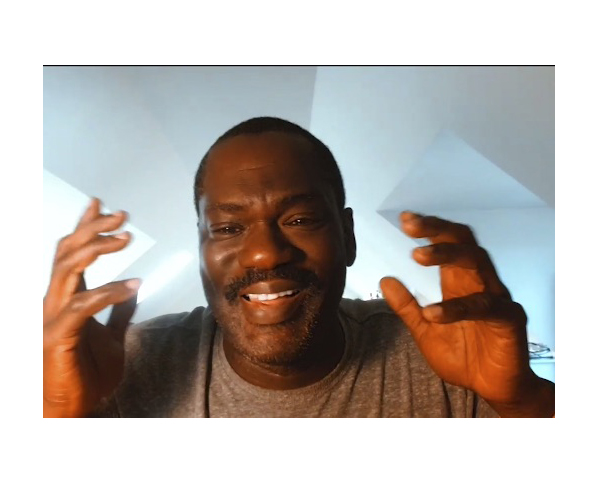Best-selling author discusses struggles growing up as a a gay black man
Brian Broom, author of the memoir “Punch Me Up to the Gods,” speaks openly and passionately about a writing process that carried him back into a complex past during a virtual event at Miami this week.
March 4, 2022
Brian Broome, the New York Times best-selling author of 2021’s “Punch Me Up to the Gods: A Memoir,” spoke Tuesday night at a virtual Miami event about identity, vulnerability, and how they relate to his writing process.
During his talk, the latest in the university’s Marianne D. McComb Reading Series, Broome repeatedly directed amusing asides at the handful of students who identified themselves as fellow alumni of LaBrae High School in Leavittsburg, Ohio.
However, he also adopted a very vulnerable and sober tone when making repeated reference to the emotional difficulty of revisiting his youth for the project. Broome recounted often feeling frustrated as a young man for the expectation to “fit into a narrative” as a Black gay man.
“I know that as a Black man growing up in America, there is a certain amount of coolness that is expected, both within the culture and outside of it,” Broome said. “There was no room for me to be anything other than a good dancer or a jock or somebody who was smooth with the ladies or whatever.”
When he set out to consolidate these feelings into a memoir, Broome latched onto Gwendolyn Brooks’ 1960 poem “We Real Cool” as a framing device, feeling the Pulitzer Prize-winner’s work “was talking about everything I’m trying to say.” Finding a framing device, he suggested to a crowd littered with aspiring writers, is an effective and exciting way to infuse narrative and order into a mess of ideas.
“I think about structure all the time,” Broome said. “I’m obsessed with it, what shape a narrative takes. Is it round, square, a squiggly line? It keeps me up at night! I love the things you can do on paper.”
For Broome, one of those things was the unique way the medium allowed him to confront his situation with a sense of bravery. It was something he remembered seeing in one of his literary heroes, James Baldwin. With a disclaimer that he might upset those in the audience, Broome admitted that Baldwin was not one of his personal favorite writers, but he unabashedly praised the way the author used language to interrogate the world he lived in.
“He was a Black gay man in the 50s and 60s who was out. I was afraid to come out in the 80s. But he would just say what was on his mind. I have always wanted to be like that. He was incredibly brave and to-the-point, he was a powerhouse.”
Broome, who admitted to suffering from anxiety, said he often looked for “mind-tricks” to get himself through difficult points in the writing process with some of Baldwin’s bravery. This often came in the form of imagining his life on the page as a character whose story he happened to know from the other side of a critical dividing line. Other times, his methods were much less intensive.
“I drank a lot of herbal tea and listened to Donna Summer,” he added.
Detailing a difficult and personal writing process, Broome concluded his talk by insisting that having a story to share with others made the emotional obstacles of writing worthwhile. For Broome, it was by writing his frustrations down on paper that he saw his feelings as more intrinsic than he initially thought.
“In the beginning, I thought I was writing for other gay Black men, but now I feel like I was writing about a common human experience,” Broome said. “As far as who I’m writing to, right now I feel like it’s anybody who will listen.”














